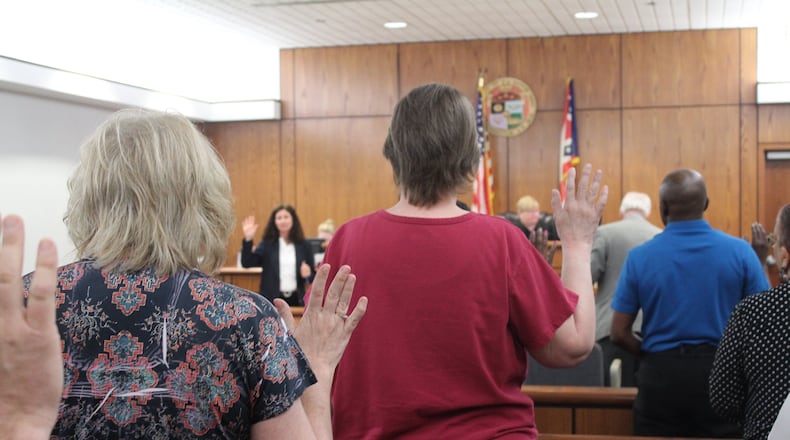New legislation approved this week by the Dayton City Commission will make paying back rent, reasonable late fees and other court costs an “affirmative” eviction defense before a judgment is rendered.
Dayton Mayor Nan Whaley said judges will be able to decide whether to stop an eviction from moving forward if those costs are paid in full.
“The ordinance is critical to prevent unnecessary evictions and maintain neighborhood stability,” Whaley said.
The city of Dayton has been considering a pay-to-stay ordinance for nearly a year, and the mayor revealed the city’s plans to introduce the legislation last month during her final state of the city address.
Toledo approved a similar law last year.
Dayton’s legislation gives renters an opportunity to stay in their homes if they pay back rent and other costs.
Judges ultimately will decide whether to let tenants stay if they pay what they owe.
But tenants can’t expect to make a habit of it.
The legislation limits renters to using this defense just once per calendar year.
The ordinance was developed after hearing from tenant advocates and landlords who were part of an eviction task force the mayor convened in 2019.
City officials say evictions were a problem before COVID-19, and the pandemic has been especially tough on renters.
They say one analysis of rental assistance applications from last year found that more than 15% of tenants who live in rental units citywide applied for aid.
“In some neighborhoods, tenants in one out of every five rental units had applied for help,” according to the city, citing research done by Richard Stock, the director of the Business Research Group at the University of Dayton.
This newspaper found that Dayton ranked 26 out of the 100 largest U.S. cities for its eviction rate in 2016.
The mayor said this was a contentious issue, but the legislation hopefully is fair to tenants and landlords.
“We know that eviction often is a last resort for many landlords and is a burdensome process, which is why the ordinance limits the tenants’ ability to use this defense once per calendar year,” Whaley said.
About the Author



